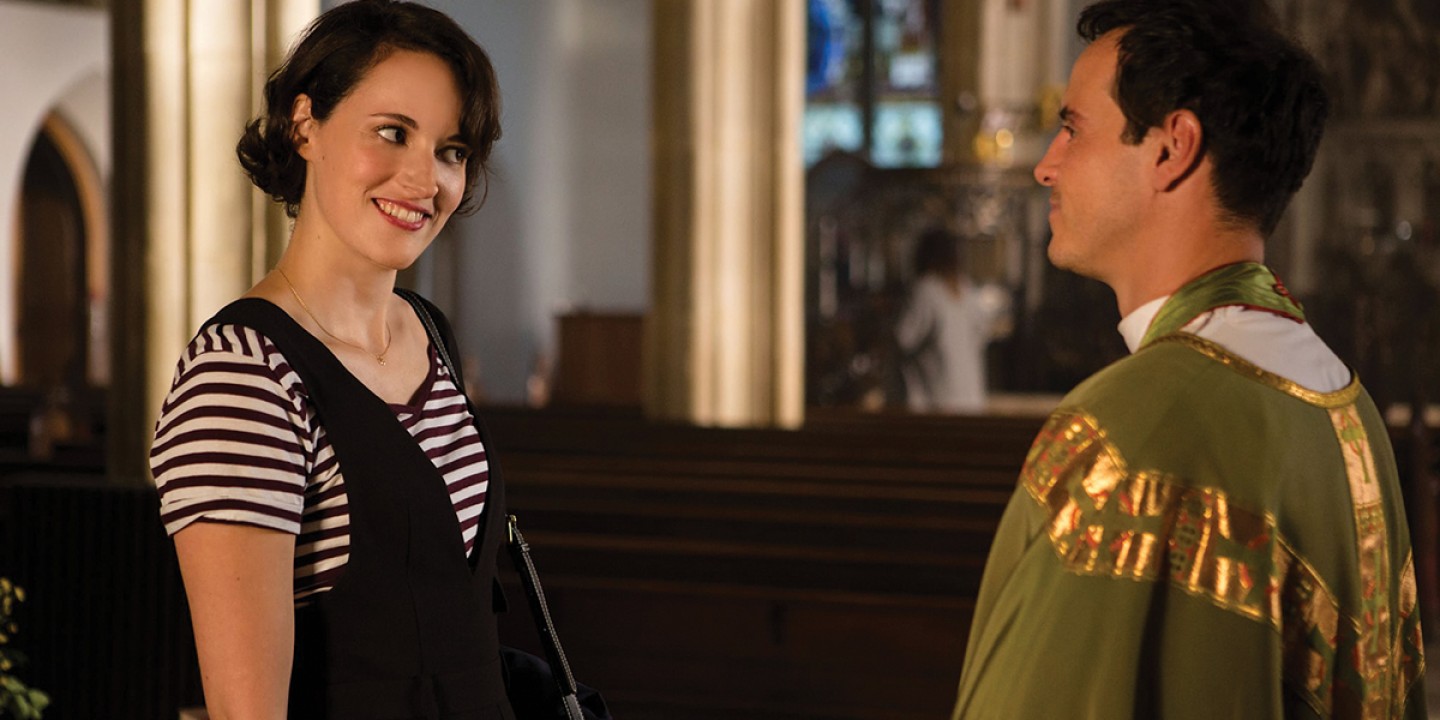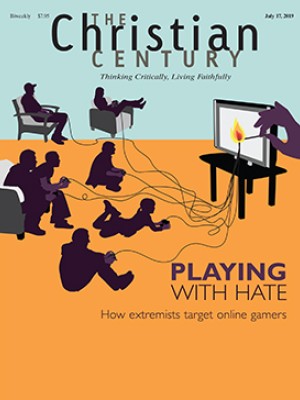Can a fleabag clean up her act?
The sarcastic and sacrilegious two-season show has a moral center.

Fleabag is the rare television show that had me sitting, mouth slightly open, gasping, “I can’t believe they are going there,” all the way through its second season. This feeling had nothing to do with the fact that the first episode of the series features a running joke about anal sex or cringingly awkward family dynamics. Rather, I was left speechless by the show’s willingness to probe questions of religion, commitment, and moral growth—all without losing the playfully filthy sense of humor marked by its name.
The show (now streaming on Amazon Prime) reveals its moral center in the first season. We follow the main character, who is simply listed in the credits as “Fleabag” (played by Phoebe Waller-Bridge, who also created and wrote the show), through a series of sexual liaisons, most of them awkward and destructive, very few of them actually pleasurable for her. As she says in the second episode, she is obsessed with sex, “the performance of it, the drama . . . but not so much the feeling.” It is clear early on that she is floundering, but with a quirky British accent and a stiff upper lip she keeps on going—as though having sex with anyone and everyone were a kind of public service or a private penance.
Read our latest issue or browse back issues.
The most noticeable feature of the show—almost a gimmick—is that Fleabag talks directly to the viewers. She breaks the action of the scene and addresses the camera, commenting on what is happening. We are her witnesses and her allies, her private journal and her audience. Fleabag would have us believe her life is all a lark, an experiment to see how desirable she is and what she can do with the desire she elicits in others.
It doesn’t take long to realize that behind the snarky asides, Fleabag is suffering profoundly. Her mother has recently died and her father, who is so awkward he has trouble finishing a complete sentence with his two daughters, has taken up with his late wife’s best friend, who is a magnificent incarnation of the wicked stepmother dressed up as a self-involved artist. Fleabag has a strained relationship with her sister, Claire, who represses all her emotions and is married to a narcissistic American. And floating in and out of Fleabag’s nearly every thought are flashbacks of her lifelong best friend, Boo, who died in a freak accident.
Grief runs through her life like a current she cannot control, unleashing chaos she cannot easily narrate away. Inside that grief are darker emotions of shame and guilt, whose source is gradually revealed. When it is, Fleabag cannot spin her past into an episode of wacky adventure. But by then, we realize how much she is paralyzed by her own guilt and feel no need to shame her. The final moment of the first season could have come straight out of a Flannery O’Connor story: a moment of grace in the guise of a loan officer which could easily be mistaken for an ordinary encounter, except that Fleabag seizes on it and begins to change her life.
The second season picks up a little over a year after this moment, and we see how far Fleabag has come—no more random sex and lots more responsibility. This season raises the stakes of her quest beyond “not destroying her life”; she is asking what it means to be fully present to her own life, committed to someone or something.
It is still Fleabag though, so the vehicle for these explorations come in the form of a foul-mouthed, almost-alcoholic Roman Catholic priest (played by Andrew Scott). He can match Fleabag’s sarcasm and sacrilege beat for beat, pouring gin and tonics out of aluminum cans in the vestry. She is intrigued by his sexual unavailability (that celibacy thing), but what really puzzles her is his commitment to a life that demands something from him. If Flannery O’Connor haunts the first season’s finale, season two is like a much raunchier Graham Greene novel. (Waller-Bridge went to a private Catholic school in England, so I might not be making up these influences entirely.)
The priest’s relationship with God is both the butt of a lot of jokes and taken seriously enough to withstand the humor. It becomes a foil for Fleabag’s own uncertainty about what, if anything, makes a life meaningful. To this point, not being a total fleabag has been her only goal. The priest suggests there might more to aspire to, like peace, or joy, or even love.
His power to shake up her expectations is revealed primarily when the show begins to play with the direct addresses to the camera. It is worth not spoiling the surprise, because I found myself wishing I had a camera I could turn to and say, “Did you see what they are doing?” In interrogating Fleabag’s need to frame her own life for an imagined audience the show cuts straight to the heart of her moral growth: when she can measure her life by her relationships, how she sees others and is really seen, she won’t need us to follow her home. But I hope they let us keep watching anyway.
A version of this article appears in the print edition under the title “Can a fleabag clean up her act?”







